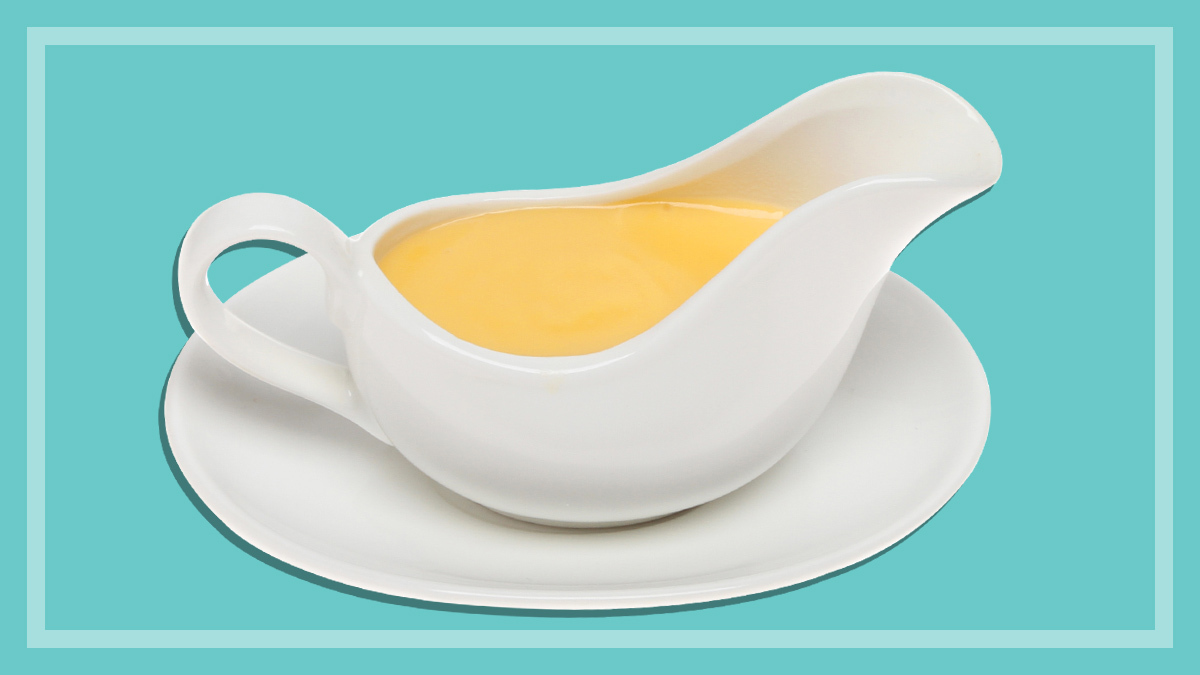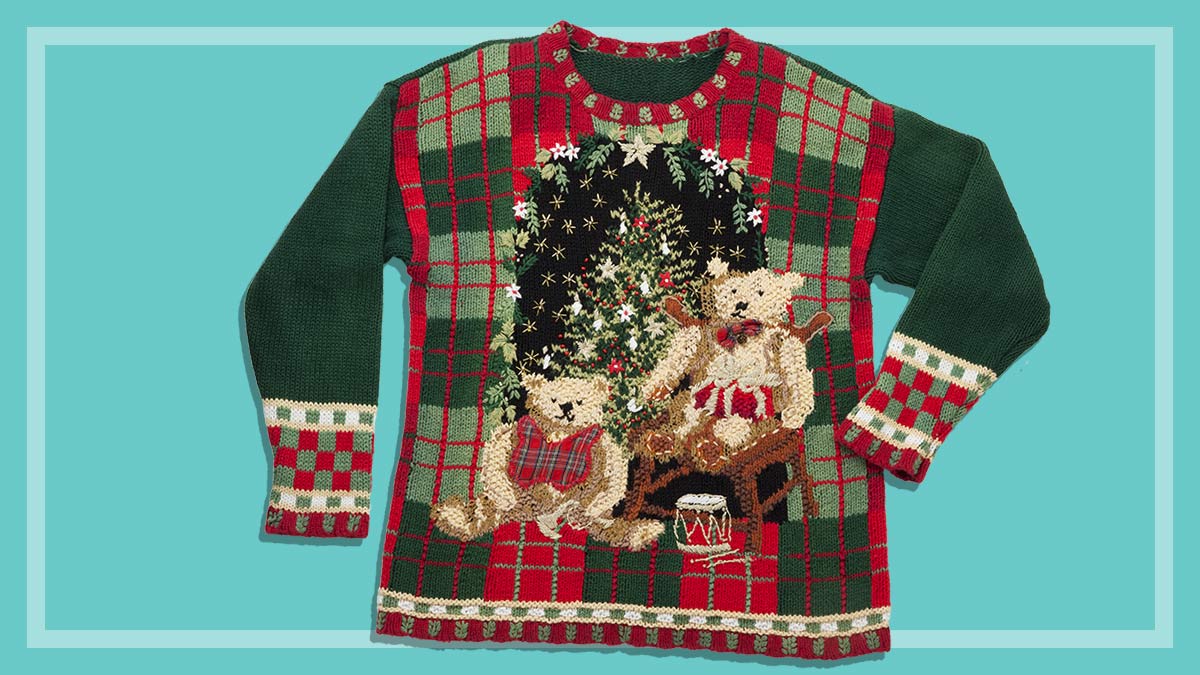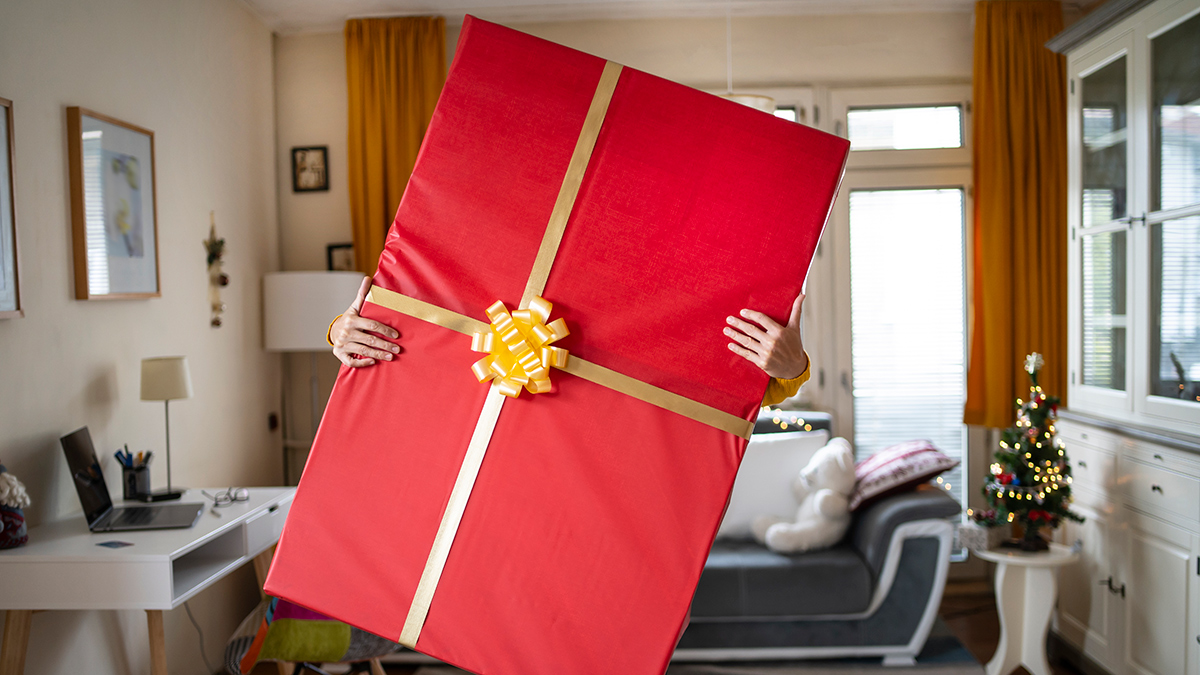Get our independent lab tests, expert reviews and honest advice.
Our expert Christmas cooking tips
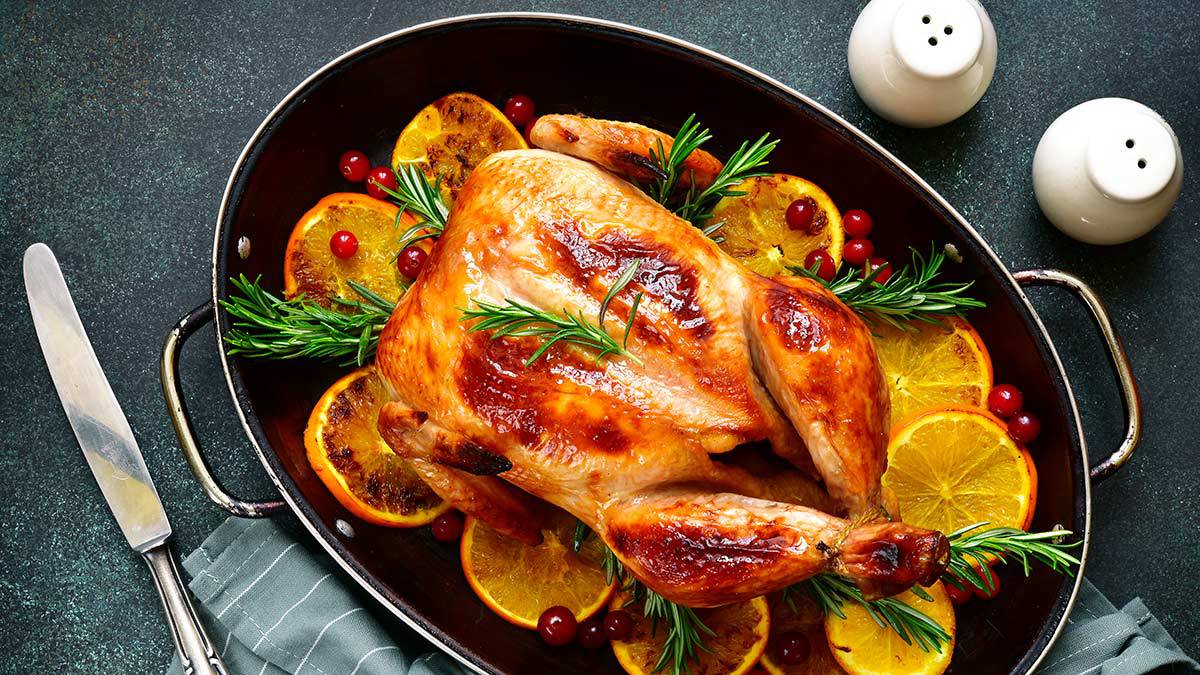
Our home economist and test coordinator Fiona Mair has been cooking up a storm in our test kitchen for 26 years. She’s also catered a decadent Christmas lunch for the whole organisation since 2011. So it’s fair to say she really, really knows what she’s doing in the kitchen.
We decided to ask her to share her expert tips on how to plan, prepare and execute a flawless festive feast this year, so you can cook like a pro too.
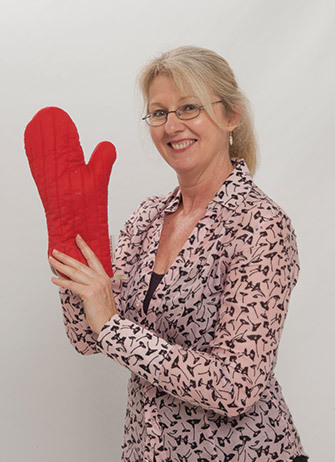
Choose the right tools for the job
Having spent more than two decades testing well over 3000 appliances in our kitchen labs, Fiona knows that the tools you have at your disposal will make or break your Christmas feast preparations.
Her number one advice? Use a food processor.
“A food processor is your helping hand in the kitchen for chopping, slicing and mixing, especially when you’re catering for large numbers,” she says.
“And a blunt knife is frustrating to use and slows you down, so make sure they’ve been sharpened ahead of time.”
“If you have an oven with fan-forced mode, you can cook on multiple shelves in the oven but ensure you have enough roasting trays. For barbecue cooking, use large aluminium barbecue roasting trays.”
Fiona also recommends using a meat thermometer and cooking timer. “This will take the guesswork out of knowing when your meat is cooked and [ensure] you don’t overcook anything,” she says.
Sizing up
The size of your appliance can also make a real difference when it comes to cooking for a crowd.
“If you’re catering for a large number of people you might want to invest in a second fridge or freezer to store the food,” Fiona says.
“You don’t want to leave meats and other perishables sitting out on the bench all day to spoil, this could cause people to get sick.”
Another option is to use an esky or cooler, making sure you fill as much empty space as possible with ice and keep it in a cool spot.
And instead of letting those bottles of sparkling wine and beer take up valuable space in the fridge, “have a few plastic tubs around for drinks – but don’t forget to buy some ice for them on Christmas morning,” says Fiona.
If you have a four-burner barbecue with a hood, I suggest cooking your meats in there, which will leave room in the oven for you to cook your roast vegetables
If oven space is at a premium, Fiona suggests taking some of the cooking outside – a hooded barbecue is an ideal backup appliance for cooking Christmas lunch.
“If you have a four-burner barbecue with a hood, I suggest cooking your meats in there, which will leave room in the oven for you to cook your roast vegetables,” she says.
Have a practice run cooking a roast on the barbie before the big day to get an idea of how well your barbecue heats and how long it may take to cook. “Cooking the meat in the barbecue indirectly will take around three-to-four hours so get it cooking in time,” adds Fiona.
Plan ahead
One month before
Start planning your Christmas celebrations at the beginning of December. Work out exactly how many guests are coming and what their dietary requirements are to determine just how much food you’ll need – and whether you have enough seats, plates, cutlery and serving platters.
“You’ll need to order your turkey, ham and seafood early for pick up just before Christmas,” says Fiona. “The butcher or fishmonger can give you an idea what size to order for the amount per serve you’ll need.”
Once your menu is set, write a detailed shopping list. “Try not to go overboard and only buy the quantities required because remember, you’ll have to store the food somewhere,” says Fiona.
She also recommends a practise run of any recipes you haven’t cooked before, to avoid a kitchen nightmare on the day.
One week before
“Clean out your fridge to make space, ensure your oven is clean and that your barbecue’s gas bottle is full,” says Fiona.
Now is also a good time to make a large amount of chicken stock and freeze. Defrost on the day and use to make gravy.
Two days before
Fiona recommends hitting the supermarket two days before Christmas so your ingredients are as fresh as possible.
When you get home, wash your vegetables, peel if needed and cut into portions before covering and storing in the fridge.
How to organise your fridge for the holidays
Top tips for storing your food to make sure your festive feast stays fresh.
Top and middle shelves
Ready to eat foods, such as pre-cooked roast vegies, prepped salads, cold appetisers and desserts. Keep covered to prevent contamination.
Bottom shelf or chiller
Keep turkey and ham covered in the chiller, or the coldest part of the fridge. Place on a pan with high sides to prevent liquid spills.
Crisper
Fruit and veg – but keep potatoes (for roasties) in a cool dry place, like the cabinet of a pantry.
Dairy compartment
Cheese and butter, to keep closer to serving temperature. Will also help stop them picking up smells from the rest of the fridge.
Door
Store milk and egg nog in the door for convenience, or a colder part of the fridge. Sauce, relishes, beer, wine and soft drinks also go in the door.
Freezer
Ice cream for the Christmas pudding, and ice for beverages.
One day before
Make salad dressings and store in jars, and parboil any vegies you plan to roast.
“Any vegetables that have longer cooking times, such as red cabbage sauerkraut, can also be cooked the day before as this will free up your stove top on Christmas day,” Fiona says.
“Christmas Eve is also the time to pick up your seafood, which needs to be kept cold at all times so store it in the fridge.”
Any vegetables that have longer cooking times can be cooked the day before as this will free up your stove top on Christmas day
If you’re cooking roast ham or turkey, you can do some of the prep work now. “Remove your turkey from the packaging, rinse, dry and then add seasonings and stuffing and smother with butter,” says Fiona.
“For the ham, remove the skin layer, score the fat, glaze and add cloves as needed and then cover it ready for roasting the following morning.”
On the day
Knowing how long each dish takes to cook will help you stay on schedule.
“Write a to-do list, including cooking times and when foods should be placed in the oven and or prepared,” says Fiona. “Ticking each one off when completed is such a good feeling.”
You should also keep food safety in mind as the last thing you want is to give your guests the gift of salmonella.
“Keep washing your hands throughout the preparation and don’t leave meats and proteins sitting out on the bench all day,” says Fiona. “And make sure you don’t cross-contaminate meat with vegetables.”
Read our guide on how to avoid food poisoning for more.
Fiona’s tips for cooking meat and seafood
Whether you’re cooking turkey, ham, chicken, seafood or all of the above, do your research to determine how long to cook them for.
“Remove meats from the fridge at least an hour before cooking, as this will take the chill off them – a ‘cold’ turkey will require longer cooking time,” she says. “Add some water to the bottom of the dish to help steam the meat and to prevent the meat from drying out, keep topping this up during the cooking.
Remove meats from the fridge at least an hour before cooking, as this will take the chill off them
“For the first hour of cooking any meat, cover completely with foil to help steam the meat then remove the foil for the duration of cooking, only shielding wings and legs. Then re-cover any cooked foods with foil again to keep them warm.”
Cooking meat on the barbecue? Fiona has you covered. “Preheat the barbecue on the highest setting (240°C), cook for the first hour on high then reduce the temperature to a medium heat (180°C) for the duration of the cooking time,” she suggests.
“If you have a three- or four-burner BBQ, use the outside burners only and place the tray in the centre (this is called indirect cooking).
“Refrain from opening the barbecue hood too often as you’ll lose heat, which will make the cooking time longer. Once cooked, rest the cooked meat for at least an hour to allow the juices to settle.”
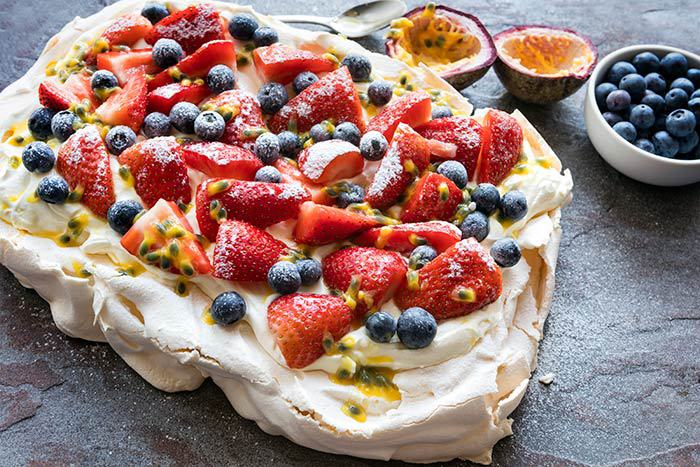
Fiona’s Christmas dessert alternatives
Christmas pudding is a staple for many, but not everyone is a fan of the traditional dessert so consider offering alternatives.
“Make a chocolate pudding or, as it’s summer, you can’t go past a pavlova with fresh fruit,” Fiona says.
“I like to make a peppermint bark with dark and white chocolate and I always have Lebkuchen on the table, which is a traditional gingerbread cookie with lemon icing … the kids love them.”
How to make peppermint bark
Ingredients
- 3 x 180g block of dark chocolate (not cooking chocolate)
- 3 x 180g block of white chocolate (such as Dream or Milky Bar)
- Peppermint oil
- 1 packet of peppermint candy canes (crushed finely in a food processor)
Method
- Line a flat baking tray (approx. 50 x 30cm) with baking paper.
- In a large microwave-proof bowl, break the dark chocolate up into pieces and heat on high for 1 min, then stir and heat for another 30 secs, stirring until the chocolate is melted. Stir the chocolate well once melted making sure there are no hot areas If the chocolate isn’t quite melted microwave at 30 secs intervals.
- Pour the chocolate over the baking paper, spreading it evenly and thinly – approx. 3mm thick. Place in the fridge to harden.
- Next, melt the white chocolate (following the same method). Once melted, add 1 teaspoon of peppermint oil. Quickly pour over the dark chocolate and spread evenly to cover.
- Before it sets, sprinkle with the crushed candy cane.
- Once hardened, break the chocolate into pieces and serve.
The day after
Once the meal has been eaten and the dishes done, pack those leftovers in containers and pop them in the fridge for a bonza Boxing Day meal.
“Leftovers the next day are delicious without doing much to them, served with a salad makes it so easy for a next day meal,” Fiona says.
“Remove any meat from the bone and place it in an airtight container. Any vegetables and leftover gravy can also be stored in a container. A ham will last more than a week in the fridge if stored correctly.
“Any bones can be placed into a pot of water with seasonings and simmered for a few hours to make stock that can be frozen for soups and risottos.”
A ham will last more than a week in the fridge if stored correctly
But if you are in the mood to do a little more cooking, you can always make a Christmas leftover pie to use.
“Preheat the oven to 200°C, then chop leftover meat and vegies into 2cm pieces and place in a bowl with some frozen peas and fresh herbs like parsley and thyme,” says Fiona.
“Add enough gravy to cover the mixture, or make up the difference with a white sauce. Pour filling into a greased pie dish lined with shortcrust pastry, then cover with puff pastry and brush with an egg wash.
“Bake for 40 mins or until the pastry is golden brown, then serve with leftover salad vegetables.”

